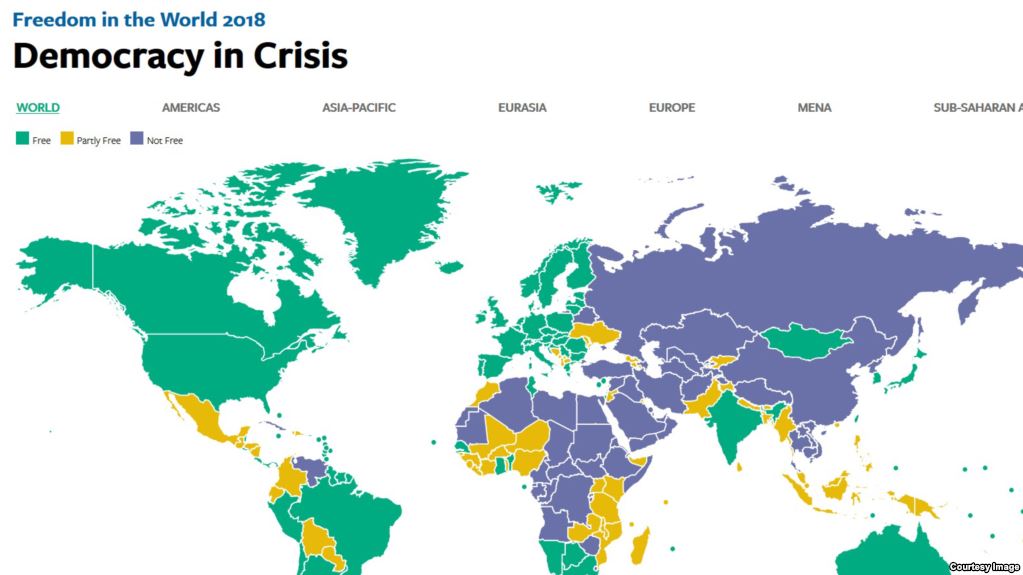
With democracy on the defensive, America is missing in action, argues Brookings analyst William Galston. The latest Freedom House survey of global freedom (see below) notes “the accelerating withdrawal of the United States from its historical commitment to promoting and supporting democracy,” he writes for The Wall Street Journal:
Yes, America’s recent efforts to promote democracy with bayonets and bombs have come to grief. Yes, the American people believe that it is time to focus on unmet domestic needs. But the U.S. has long promoted democracy peacefully and at modest cost, through diplomacy, alliances, assistance for civil society, and presidential rhetoric that reflects our highest ideals. Until the U.S. re-enters the fight for democracy, its defenders around the world will remain beleaguered.
We don’t need to relitigate democracy, but we do need a full-throated affirmation of its value, which comes in three different keys, Harvard University’s Nancy L. Rosenblum writes for The Conversation:
- The aspirational key: democracy is a system of political representation rooted in the moral ground of the equal value of all the governed. No constitutional arrangement is democratic without aspirational commitment to civil and political equality in the form of civil and political rights. No bad faith “illiberal democracy” makes that commitment.
- The outcome key: over time and in the face of vicissitudes and ineptitude, democracy aims at general wellbeing more consistently and competently than other forms of government. Democracy is the only self-correcting system. Democracies have recessions, depressions and fumbling responses to crises. They do not have famines.
- The defence against tyranny key: civil society is the bulwark against arbitrary and total power. Only democracy cultivates freedom of association and its product: the groups, associations, networks and political parties that fuel unendingly contested democratic politics and that make trouble.







